

Panda Volunteer Experience in China
Explore the world-renowned Bifengxia Panda Base and witness giant pandas on a fascinating cultural and educational experience in China.
Activities
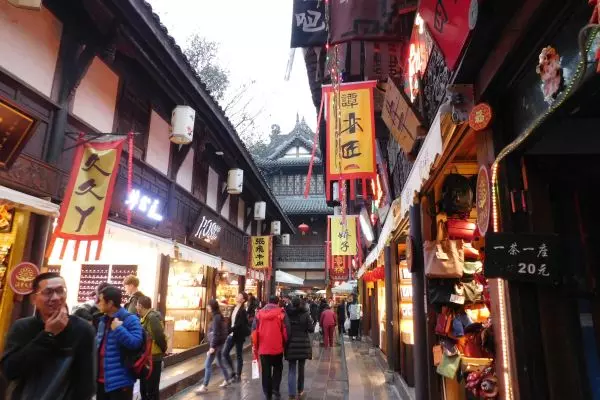

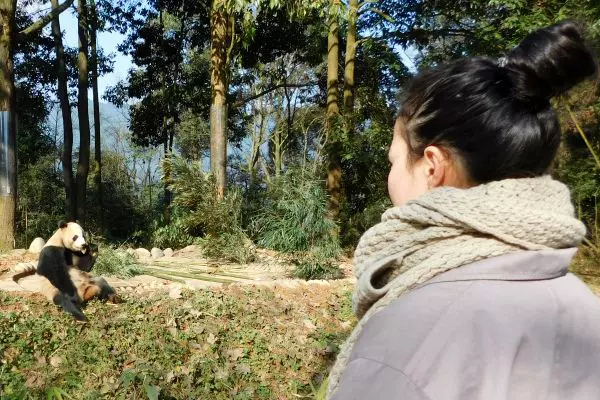
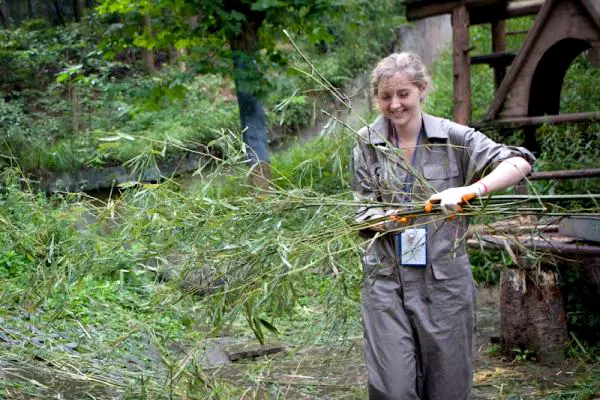
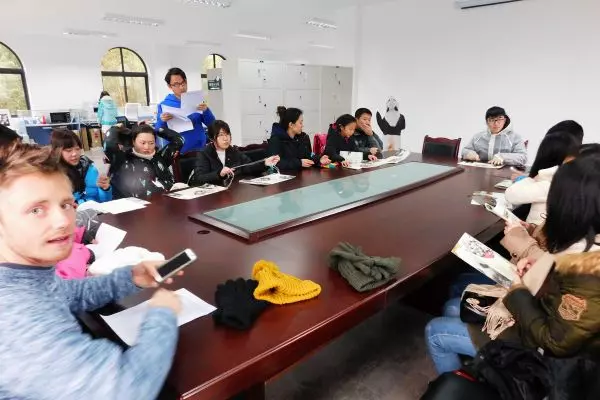
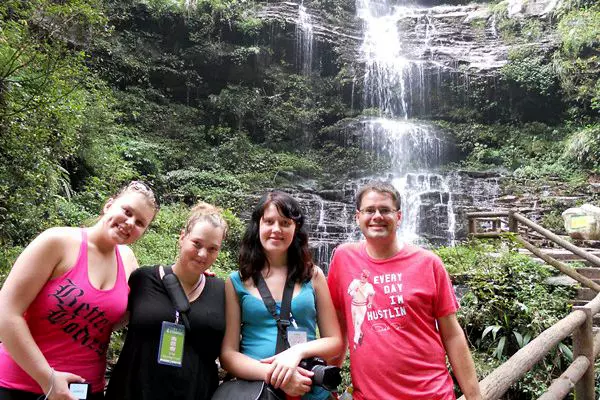
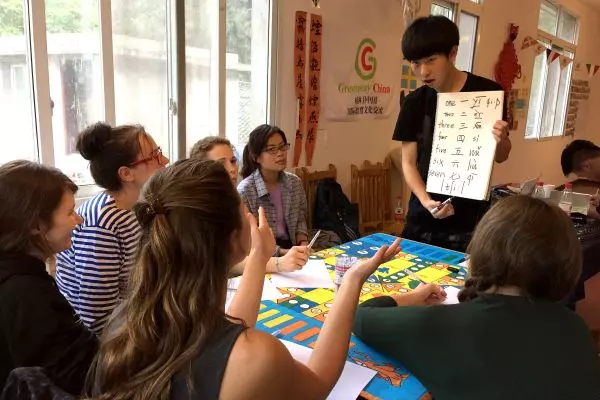
Itinerary
Please note that this itinerary is subject to change so what follows is a rough guideline.
Accommodation
Accommodation
During your stay in Chengdu, you will be staying in a quaint hostel, perfectly located for exploring the city. The dorm-style rooms are shared, with a maximum of 6 people per room. At the Bifengxia panda base, you will be accommodated in a comfortable hostel within the reserve grounds on a twin-sharing basis. You may be able to upgrade your room, subject to availability, both in Chengdu and at the reserve. To learn more about the room options, please get in touch with one of our travel agents.
Meals & Beverages
Apart from your arrival day, all meals are included and are typically served in traditional Chinese style. The staples of these meals will primarily consist of rice, noodles, vegetables, and some meat. If you have any dietary restrictions, such as being a vegan, vegetarian, or having allergies, please let us know in advance. Drinking water, Chinese tea, and coffee will be available throughout the day (depending on location), and while soft or alcoholic drinks are not included, they can be purchased for a small fee.
Project Details
When Is The Best Time To Volunteer?
This project runs on various dates throughout the year. There are a few events that may make some months more popular than others:
March - May: this is panda mating season, and as a result the bears may be moved for mating research purposes. Volunteers who visit during this season may be able to help the keepers to move the pandas, though please note that this is not a guarantee. Additionally, strict regulations and security conditions forbid volunteers to take part in the actual mating research.
June - August: this is arguably the most popular time of the year, as it’s panda cub season! Volunteers across these months may be lucky enough to see young pandas at the centre, so if this is something which excites you, be sure to book your place early as spaces fill up fast!
November - February: this is the quietest time of the year, but the benefit of this is that you may get to spend a little extra time with the pandas – after all, the fewer people there are involved, the busier you’ll need to be!
Weather
In addition to the above events, Chengdu’s weather may have some bearing on your preferred month of travel. Each season is described below:
Spring: Falling between mid-February and April, Springtime is a beautiful time to visit Chengdu. The city (and its nearby areas) are in full-bloom, and if you’re looking to fill your spare time with things to do, consider witnessing the blossoms at Longquan Mountain and Xinjin County!
Summer: China’s summers are known for being incredibly humid, and Chengdu is no exception. While summer lasts between May and August, it’s July and August which draw the hottest weather and the rainiest days. That said, much of your time at the project may be spent indoors as you prepare food for the pandas, and Jiulong Valley (around 1:45hr away) is a great place to go if you wish to escape the heat of the city.
Autumn: Temperatures drop between September and October, and there may be a lot of rain (particularly in the early days of Autumn). However, temperatures are far more comfortable for working in, and Chengdu’s local natural areas are covered in beautiful red maple and yellow chrysanthemum, so grab your camera and get snapping!
Winter: Wintertime can be very chilly indeed, with temperatures dropping to around 5 °C (41 °F) between the months of November and mid-February. Much like in summer, however, you may find much of your time spent working indoors, and with less tourists around, this is a great opportunity to sneak a few extra peeks at those pandas!
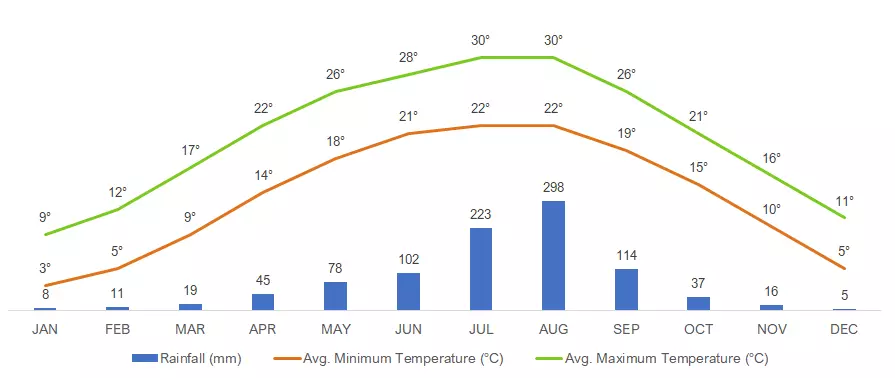
Getting There
You will need to arrive into Chengdu Shuangliu International Airport on the start date of your project (a Sunday) between 1pm and 6pm and you will be transferred to a local hostel to begin your adventure. Pick up is at the exit of corresponding to your flight, and your volunteer coordinator will accompany you via an airport bus to the hostel. Chengdu can be reached via a number of larger international airports. If you arrive a day before you are free to make your way to the Kehuayuan Hostel, but please inform us of this before you depart.
Visa Requirements
A visa is needed for entry into China, and applications must be made in person at a Visa Application Centre as biometric data (such as scanned fingerprints) are necessary. Visas for British citizens are priced from £85 (additional fees may apply); you can read more about visa fees and start an application here. If you are not a British citizen, you will either need to speak to your own country’s embassy, or you may be able to find out more information by clicking here. Please note that visa applications should be made well in advance of your time on the project.
Criminal Background Check
It is a requirement for all participants to submit a criminal background check, prior to arrival.
Fitness & Skills
The work required during this project is not overly exerting, but it is advised that all participants have a moderate level of fitness. No specific skills or experience are required, just commitment to the project and its aims. You must be prepared to work alongside other members of the team.
Vaccinations
The vaccinations required will depend on your medical history. We recommend that you consult with your GP regarding your own immunisation needs. In conjunction with this, we would recommend that you check the Travel Health Pro website.
Gallery
Reviews
The whole experience was great and very well organised but I would have to say that being able to feed the pandas was my favourite moment
My favourite moment was getting to a feed a panda and spending time so close to them. It was so well organised from start to finish and I would highly recommend The Great Projects and the Panda Experience!
It was a great experience. More than I expected. Also my family and friends are glad I did it. I would like to do it again!
What's Included
- Accommodation
- Airport transfers
- 3 meals a day at the panda sanctuary (food on your first night is not covered)
- Tea, coffee and water
- Tour around the vibrant city of Chengdu
- Chinese language and calligraphy lessons
What's Not Included
- Flights
- Visas
- Soft and alcoholic beverages




























